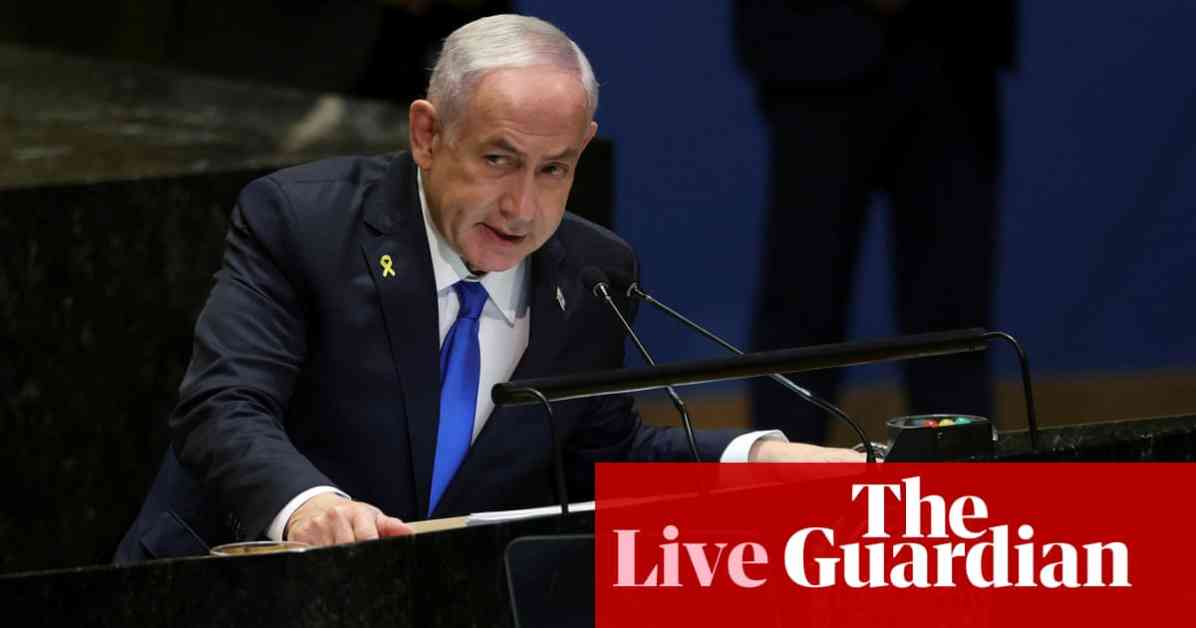Israeli Prime Minister Benjamin Netanyahu declared victory at the United Nations General Assembly, issuing a stern warning to Iran that Israel’s reach is limitless. In his address, Netanyahu emphasized that there is no place in Iran or the Middle East that the long arm of Israel cannot reach. He displayed maps illustrating the curse of Iran’s influence and the blessings of Israel’s reach.
“We are winning,” Netanyahu proclaimed, underscoring the need to end the appeasement of Iran and prevent the country from obtaining nuclear weapons. Netanyahu also called for a peace agreement with Saudi Arabia, highlighting the potential benefits such an agreement could bring to the region.
Netanyahu’s speech at the UN was met with mixed reactions, with anti-Netanyahu protestors expressing their discontent across the street from the venue. One protestor, Yehuda Cohen, criticized Netanyahu for focusing on his own agenda rather than addressing the ongoing conflicts in Israel.
In his address, Netanyahu also touched on the escalating tensions with Hezbollah, stating that Israel will not rest until its citizens can return safely to their homes. He emphasized the need to combat terrorism and called for a demilitarized and deradicalized Gaza.
The situation in the region remains tense, with reports of airstrikes, rocket fire, and escalating violence between Israel and various militant groups. The United Kingdom’s defense secretary, John Healey, expressed concern about a potential Israeli ground invasion into Lebanon and emphasized the need for immediate de-escalation.
Meanwhile, the United Nations described the current situation in Lebanon as catastrophic, with hospitals overwhelmed by casualties and the country facing its deadliest period in years. The World Health Organization highlighted the challenges faced by health facilities in Lebanon and the urgent need for humanitarian assistance.
In a separate development, Australia’s foreign affairs minister, Penny Wong, called for a clear timeline for the international declaration of Palestinian statehood, expressing frustration over the stalled peace process. Wong emphasized the need for all countries to abide by the rules of war and urged Israel to comply with international agreements.
The escalating violence in the region has also drawn international attention, with Yemen’s Houthi rebels claiming responsibility for targeting Israeli cities with ballistic missiles and drones. The ongoing conflicts in Gaza and Lebanon continue to fuel tensions in the region, with both sides engaging in retaliatory attacks.
As the situation in the Middle East remains volatile, efforts to achieve peace and stability in the region must be prioritized. The international community plays a crucial role in facilitating dialogue and de-escalating conflicts to prevent further loss of life and humanitarian crises.












